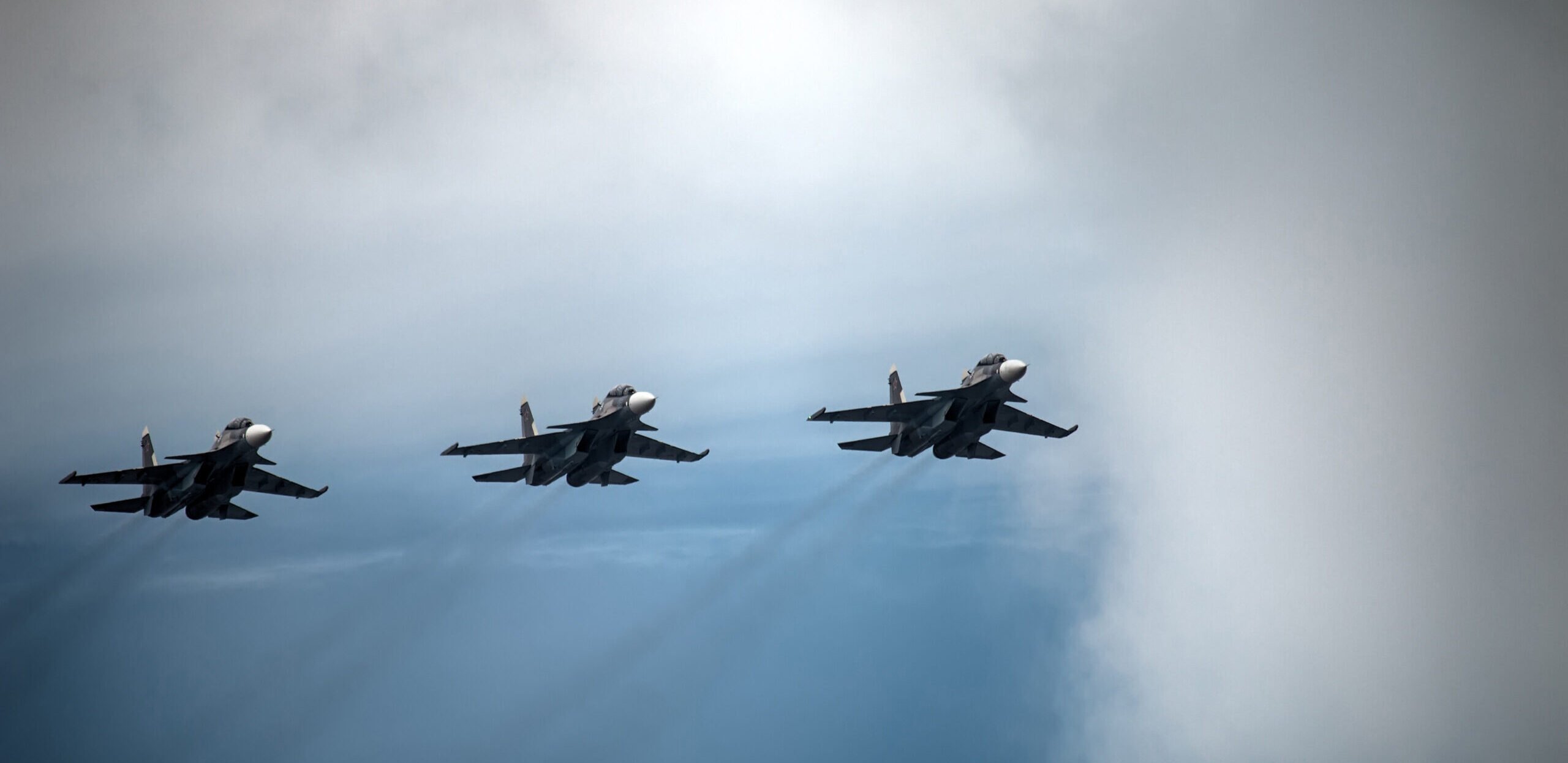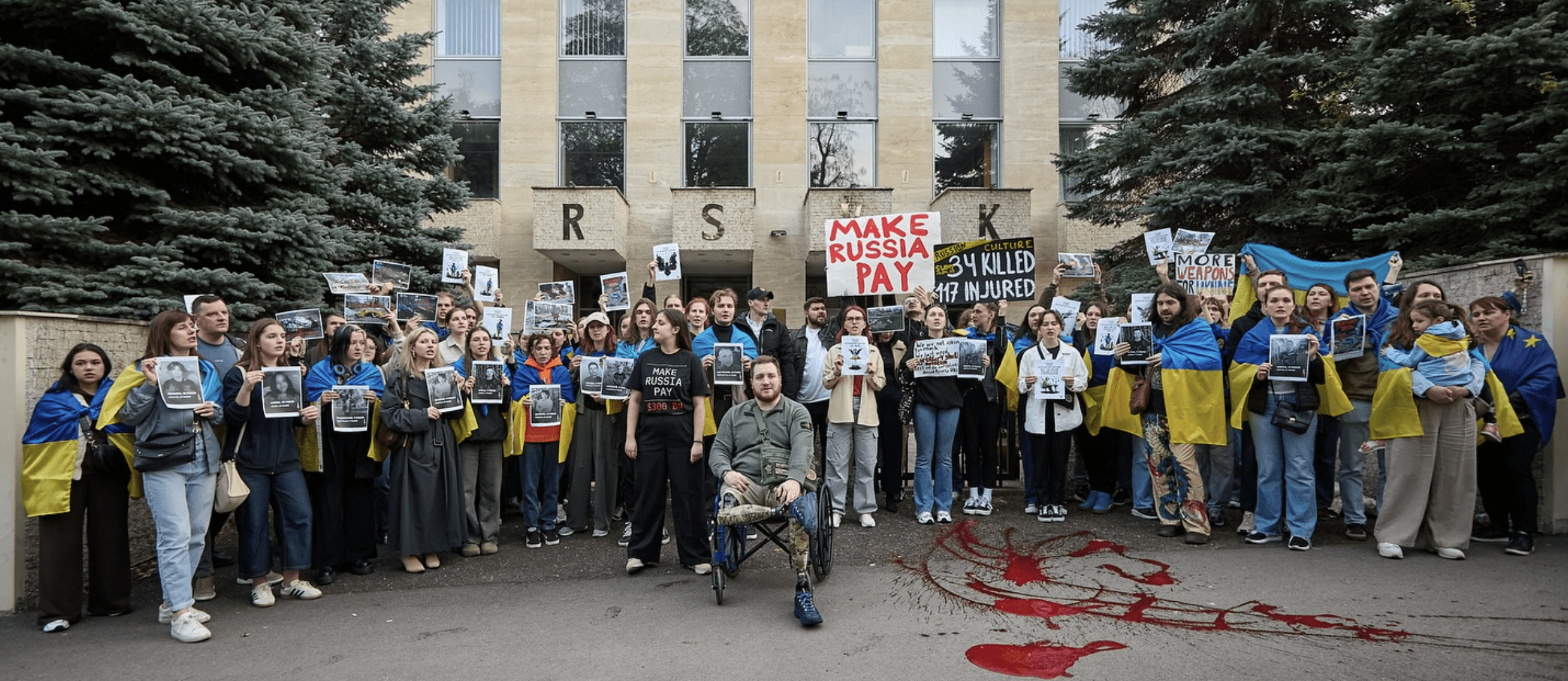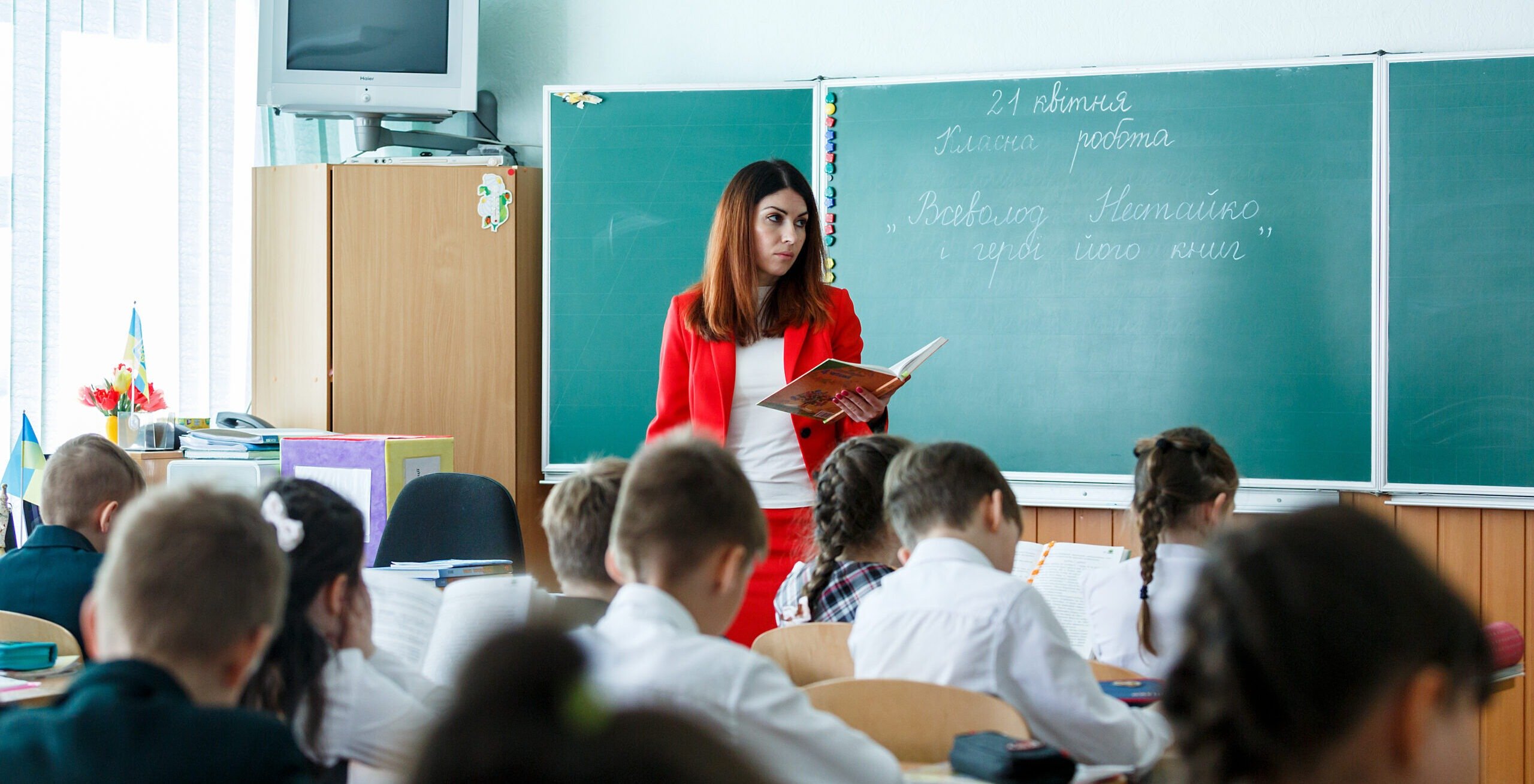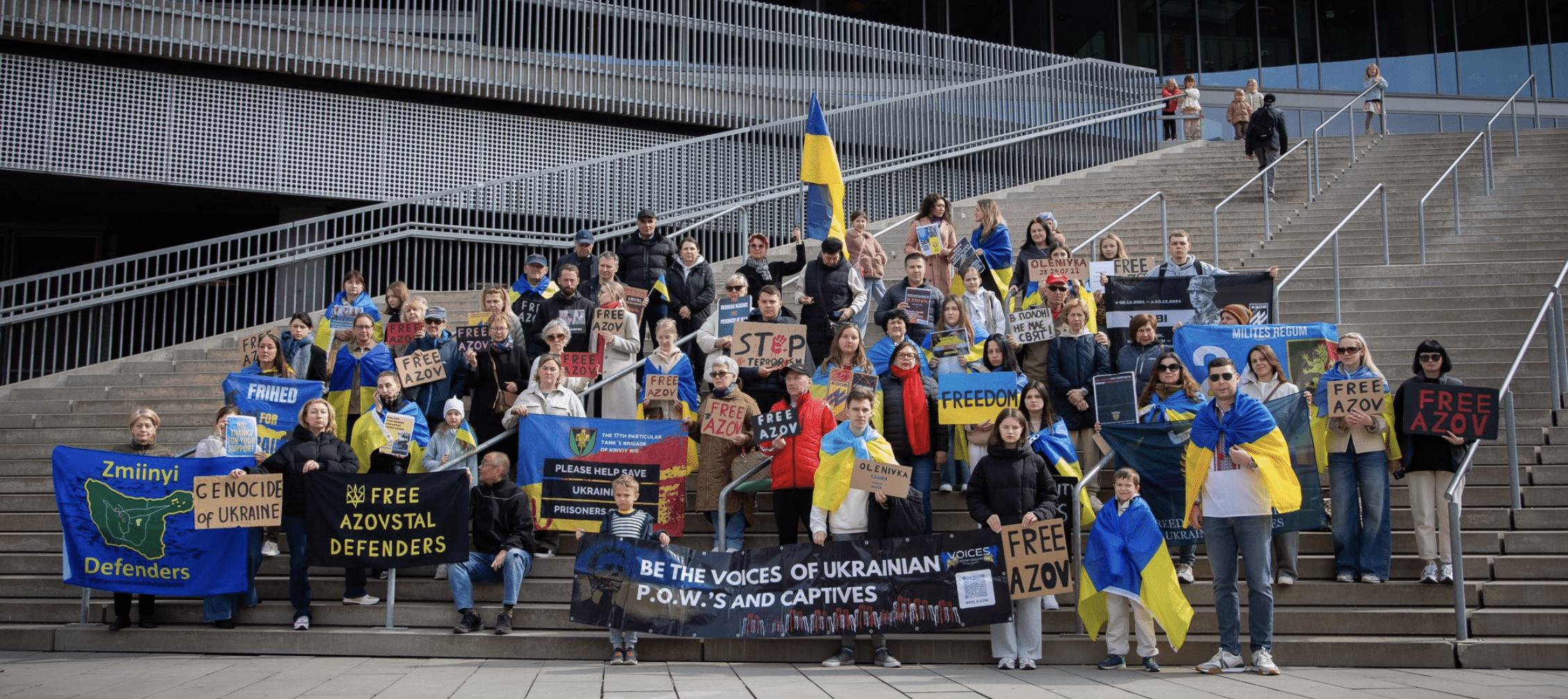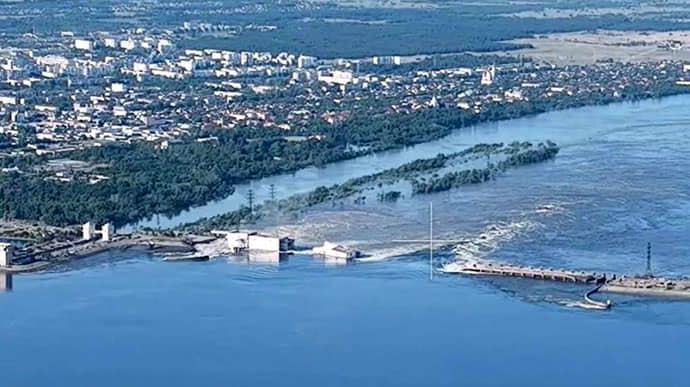
At 02:50 on June 6, Russian troops blew up the Kakhovka hydroelectric power plant in Kherson Oblast, the operational command of the region reported. The damage’s nature indicates that the explosion came from inside the building, Natalia Humeniuk, spokeswoman for the Defense Forces of Ukraine’s south, explained. The plant can no longer be repaired – the turbine hall is completely destroyed.
Kakhovka HPP is the last step in the cascade of hydroelectric power stations in Ukraine along the Dnipro River. The complex provided water to the arid Ukrainian south, distributing and accumulating resources. On February 24, 2022, the Russians seized the HPP and the North Crimean Canal, which depended on the plant. Crimea was also connected to the water supply.
According to Ukrainian intelligence, the occupiers began to mine the dam, as well as the locks and supports of the structure, as early as last year in April. In October, Ukrainian President Volodymyr Zelenskyy warned of a possible terrorist attack by Russia and called for an international monitoring mission to be sent to the hydroelectric plant.
Towns and cities go underwater: residents evacuated
The Ukrainian authorities urgently began evacuating the population in the affected areas. There are 80 settlements in the zone of potential flooding from the detonation of the hydroelectric power plant – about 16 thousand people. Residents of towns and cities still under Russian occupation are provided explanations and help remotely. Volodymyr Zelenskyy held an urgent meeting of the National Security Council and instructed, particularly, to provide water to all cities and villages fed from the Kakhovka Reservoir. Ukrzaliznytsia, Ukrainian Railways, has set up evacuation trains; non-affected Oblasts of Ukraine are preparing to receive residents from flooded areas.
The water in the Kakhovka Reservoir is dropping rapidly – the level drops by approximately 15 centimeters per hour. The stream moves quickly and spills over both banks of the Dnipro River. Two districts of Kherson city, the regional center, have already been flooded. The water approaches the town of Nova Kakhovka on the occupied left bank in Kherson Oblast and the surrounding settlements.
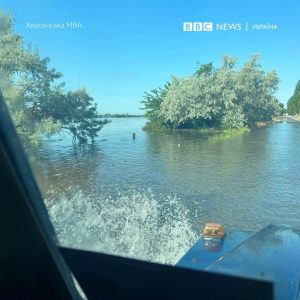
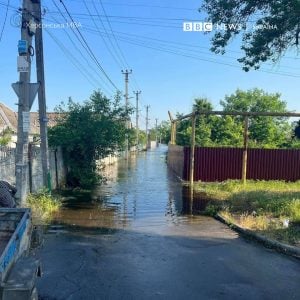
Photo source: BBC Ukraine, Kherson City Military Administration
How Kakhovka HPP destruction threatens ZNPP
An uncontrolled decrease in the reservoir level is another threat to the temporarily occupied Zaporizhzhia NPP. Water from Kakhovka is needed to feed turbine capacitors and nuclear power plant safety systems, Ukrhydroenergo [the largest hydropower generating company in Ukraine] reported.
Now the cooling pond is full. The Ukrainian personnel of the ZNNP, which the Russians have been holding hostages for months, monitor all indicators. At the same time, the Kakhovka reservoir will be emptied for another four days.
The International Atomic Energy Agency says there is no immediate danger to the ZNPP.
“The IAEA is aware of reports of damage at Ukraine’s Kakhovka dam; IAEA experts at Zaporizhzhia Nuclear Power Plant are closely monitoring the situation; no immediate nuclear safety risk at the plant,” the message states.
“As of 8:00 [on June 6], the water level is 16.6 meters, and this is [currently] sufficient for the plant’s needs,” Energoatom [Ukraine’s national nuclear energy company] confirmed and said the situation was under control. However, experts added that the Russians’ blow-up of the Kakhovka HPP’s dam might have negative consequences for the Zaporizhzhia NPP.
“This is ecocide”: what are the consequences for nature?

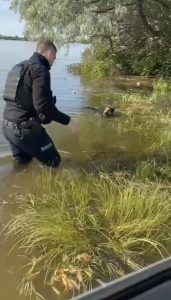 Local residents are posting videos of animals (beavers, swans) that have appeared on the flooded city streets. In Antonivka, rescuers pulled a deer out of the water – the flood water literally brought the animal into a resident’s backyard. In Kherson, a nearly drowning dog was pulled out of the water.
Local residents are posting videos of animals (beavers, swans) that have appeared on the flooded city streets. In Antonivka, rescuers pulled a deer out of the water – the flood water literally brought the animal into a resident’s backyard. In Kherson, a nearly drowning dog was pulled out of the water.
The destruction of the Kakhovka hydroelectric power plant will lead to the possible collapse of a part of the biosphere of southern Ukraine, the head of the Office of the President of Ukraine, Andriy Yermak, said. “The Russians will be responsible for the possible deprivation of drinking water for people south of Kherson and Crimea, the possible destruction of some settlements and the biosphere. Their actions also threaten the ZNPP,” the head of the Presidential Office emphasized.
Until a stable water surface forms, it is difficult to analyze the scale of the consequences, Yevhen Khlobystov, an ecologist and professor at the Kyiv Mohyla Academy, said in the interview with Suspilne.
“Irrigation canals [in Kherson Oblast] will not work as they used to because these hydraulic structures were designed for the certain water content of the Dnipro, for the amount of water that enters, in particular, through the Kakhovka reservoir. Now, the Kakhovka Reservoir will be liquidated, so the irrigation systems will be dry and empty. And this will be a huge problem for irrigated agriculture in the south of Kherson Oblast in the future,” Khlobystov said.
The expert added that the situation will affect yields in the coming years, as it will be difficult to restore the irrigation system. Grain prices worldwide have risen by several percent in the first hours after the explosion of the Kakhovka hydroelectric power plant.
The Kakhovka Canal, which supplies occupied Berdiansk and other settlements in the temporarily occupied Zaporizhzhia Oblast, is at risk of running out of water, Mykhailo Yatsyuk, director of the Institute of Water Problems and Land Reclamation of the National Academy of Sciences of Ukraine, told Ukrainska Pravda earlier.
“This humanitarian catastrophe will affect hundreds of thousands, if not a million,” the expert explains.
The temporarily occupied Crimea is also in danger, as “it will be left without water supply for 10-15 years, and possibly forever,” said Oleksii Danilov, Secretary of the National Security Council, analyzing the consequences of the then probable Russian explosion of the hydroelectric power plant.
In addition, at least 150 tons of machine oil got into the Dnipro River due to the Kakhovka hydroelectric power plant explosion, and more than 300 tons could get into the river, NSDC said at an emergency meeting.
Will the catastrophe deter Ukraine’s counteroffensive
The explosion of the Kakhovka hydroelectric power plant will not hinder the offensive of the Armed Forces. The command of the Ukrainian army has foreseen such steps by the Russians, said the commander of the Joint Forces of the Armed Forces of Ukraine, Serhiy Nayev.
Oleksii Danilov, Secretary of the National Security and Defense Council of Ukraine, also confirmed this. “Nothing and no one, not a single Russian, will stop the liberation of Ukraine, the time for which has come,” the official said.
Only a victory will bring security to Ukraine, President Volodymyr Zelenskyy summarized. “Russian terrorists, by destroying the Kakhovka hydroelectric power plant dam, only confirm for the whole world that they must be expelled from every corner of the Ukrainian land. Not a single meter should be left to them because they use every meter for terror. Only Ukraine’s victory will return security. And this victory will come. Neither water, missiles, nor anything else will stop terrorists from stopping Ukraine,” Zelenskyy explained.
How the international community reacted
EU Council President Charles Michel said the Russians’ explosion of the Kakhovka hydroelectric power plant is a war crime.
“I am shocked by the unprecedented attack on the Kakhovka dam. The destruction of civilian infrastructure clearly qualifies as a war crime, and we will hold Russia and its proxies accountable,” the European Council President added.
It should be noted that such actions of Russia violate Article 56 of the Additional Protocol to the Geneva Convention. “Works and installations containing dangerous forces, namely dams, dikes, and nuclear power plants, shall not be the object of attack, even if they are military objectives, if such an attack could cause the release of dangerous forces and, as a result, heavy losses among the civilian population,” the document says.
The destruction of the Kakhovka dam endangers the lives of thousands of Ukrainian civilians and causes serious environmental damage, NATO Secretary General Jens Stoltenberg said. “This is an outrageous act that once again demonstrates the brutality of Russia’s war in Ukraine,” the North Atlantic Alliance chief wrote.
German Chancellor Olaf Scholz called the explosion of the Kakhovka hydroelectric power plant a “new dimension” of Russia’s war against Ukraine.
The UK Foreign Secretary James Cleverly, Lithuanian Foreign Minister Gabrielius Landsbergis, and Lithuanian President Gitanas Nausėda condemned the explosion in the first hours after the Russian terrorist act.
Ukraine is calling for the convention of an urgent meeting of the UN Security Council over the destruction of the Kakhovka hydroelectric power plant by Russian troops, the Foreign Ministry says.
“Russia destroyed the Kakhovka dam, causing probably the largest man-made disaster in Europe in recent decades and endangering the lives of thousands of civilians. The only way to stop Russia, the greatest terrorist of the 21st century, is to expel it from Ukraine,” said Ukrainian Foreign Minister Dmytro Kuleba.
The cover: Energoatom
